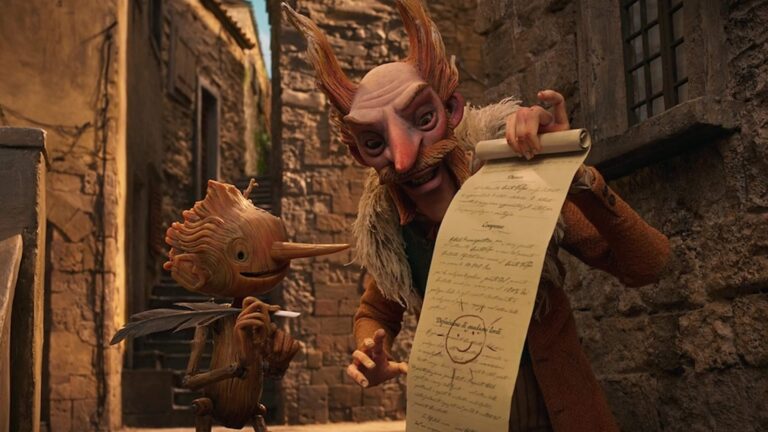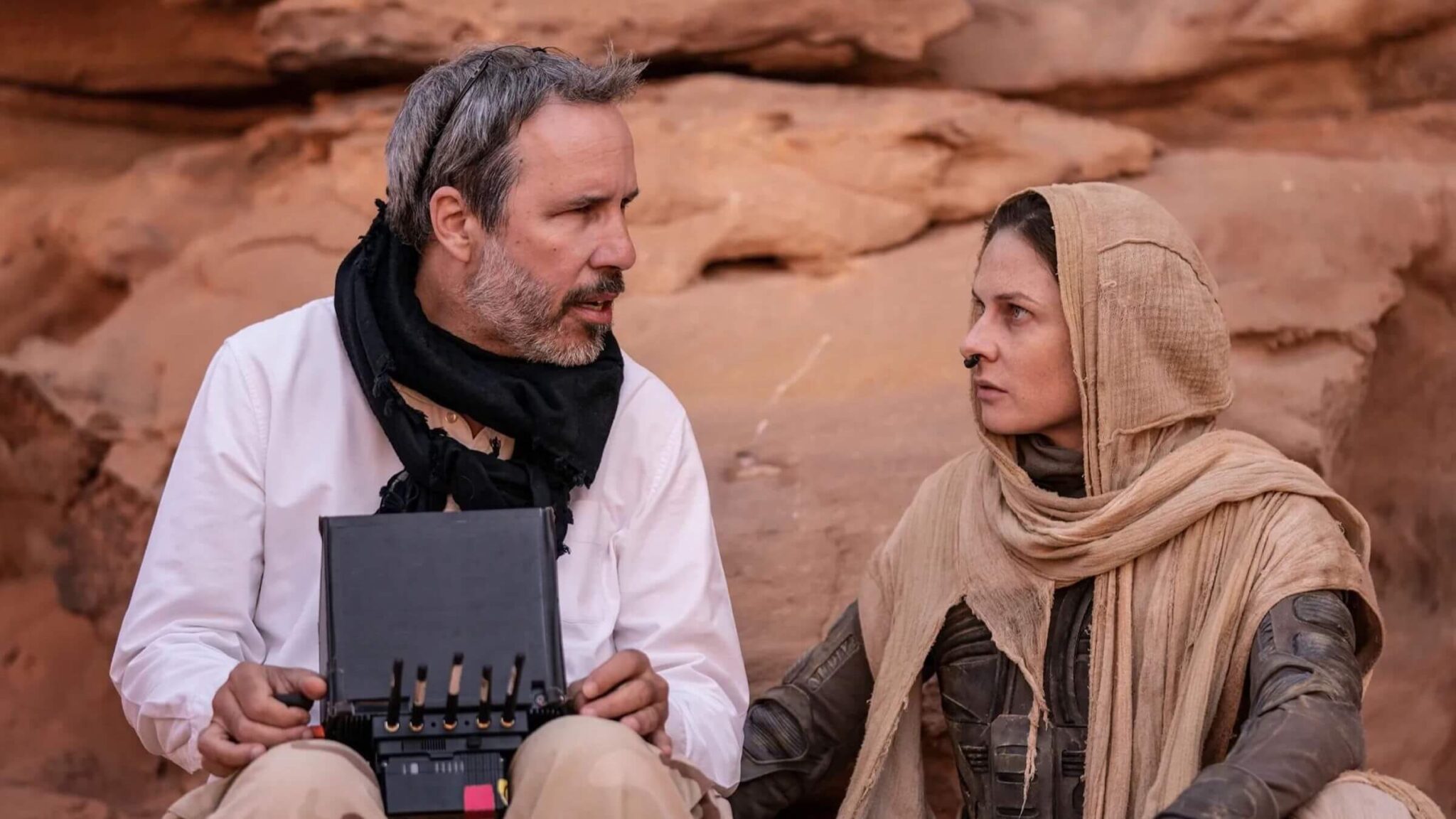5 Ways for Screenwriters to Find Success

During a recent Write Your Screenplay podcast episode, Jacob Krueger sat down with screenwriter Doug Jung (Star Trek Beyond, Big Love) and writer/director Emily Dell (B-Girl, Helen) to talk about the art of screenwriting and finding the emotional core of their screenplays, as well as the hardships of breaking in and navigating Hollywood. All three of them will be at the ScreenCraft Writers Summit in Atlanta this April.
The biggest question screenwriters outside of Hollywood want to know is how to break into the industry. "'How do I get my foot in that door and how do I open it far enough to bust through it? How do I get an agent? How do I get somebody to read this thing?' Totally valid, totally get it. But nobody has the same origin story. Nobody has that thing where it was a particular path that you took,” says Doug.
He couldn’t be more right. There are literally a million ways into the industry and every one of them is different. No two writers are going to have the same breaking-in story. The one thing they WILL have in common are the following five ways to finding screenwriting success in Hollywood.
1. It's a marathon, not a sprint.
If you’re going to follow your dreams and come out to Hollywood to be a screenwriter, plan on putting in some time. It’s not going to happen overnight. “I am still finding my way in, I think this is a long-term process and, in fact, maybe that's one of the biggest ‘aha!’ moments for me being early mid-career, but not quite mid yet,” Emily said.
The old adage is that it takes roughly 10 years to become an overnight success. I came out here in 2010 and sold myself on the idea that nothing was truly going to happen until 2020. That was my deadline so I wouldn’t freak out if things weren’t cooking by, say, year 5. Even though I started working in development, it took 6 years to get my first paycheck as a writer.
This is a slow business. The sooner you accept that, the sooner you won’t burn out due to anxiety.
2. You gotta know people (and have some luck).
You’ve heard a thousand times before: It’s not what you know, it’s who you know. That couldn’t be truer. “I feel like my writing has grown and expanded through the help of friends, who are also mentors, who have given me feedback,” Emily continues.
“I have been in LA for a while, more than a couple of years and I have developed friendships and working relationships. I really tried to listen as much as I spoke, learn as much as I can, ask questions from the people whose work I admire and whose work I seek to emulate, and use that to improve. But also if they someday become comfortable with me and want to form an organic working relationship, then that is something I am obviously very open and welcome to.”
It’s true, you’re not really going to get anywhere without a little bit of help. That and a little bit of luck. Every screenwriting career made, has a little bit of luck attached to it. “I ended up in a very fortuitous way getting some work in television which you know literally like these sort of freelance things for weird shows, and that enabled me to quit my day job. At that time I also had a very lucky stretch where I managed to bank a little bit of money.” Doug added.
”But I was able to take this time and I wrote a script that ultimately was picked up, then optioned, and then eventually made. And I suddenly had, in a very lucky way, both a foot in the door in the TV world and a foot in the door in the feature world. And I have just sort of managed to stay in that position this whole time, which is great,” Doug continued.
“But as much as I can say it was hard work and I applied myself, there is an element of luck. And for my case, it took a long time, but I do believe that luck is a byproduct of other things that you are doing to put yourself in there.”
3. You're only as good as your next project.
Sometimes, your writing talent might get you in the door, but a lot of the time that’s all it does. While a manager or agent liked your script, they’re way more interested in what’s NEXT.
“If you are just going to sit there and say, ‘I wrote this little nugget of gold, a diamond in the rough, someone just needs to recover it…’ a lot of times it isn't like, ‘Hey, this is this great thing and we love it,’ they go, ‘We like the potential this thing shows, what else are you working on?’” Doug started.
“Yeah, it comes along with you doing the work, and you having three or four things ready, or you having the one thing ready that when they do ask for it, and they read it, it is really, really good,” added Emily.
4. Don't be afraid to throw out your hard work.
Writing is re-writing. A phrase that has been uttered by master writers for generations. Also, an adage that comes with a lot of truth to it. When faced with the daunting task of rewrites, Doug had this to say: “I think you have to be really honest with yourself. I think you first have to admit what’s not working and what’s not right.”
He continues, “So, sometimes I will look at a scene in a script that maybe doesn’t work, but a scene works, and I will say, ‘Why does this scene work? Well, this scene works because it is really about how these two characters are talking non-stop to each other but not really communicating at all.’ And I’ll go, ‘Okay, now that works for me.’”
“The other thing that I find to be—and this is something that actually it took me a while to understand. But, I am completely willing to start over completely. That is a drastic thing, but it is usually that something is going to come out that reminded you of why you wanted to do this or what you felt was good about it, and it is going to be evident somewhere.”
It’s important to remember that your script is a representation of you and if something isn’t working, it’s your job (if not duty) to get it right. You only have one shot to make a first impression.
“It takes longer than you hope, but the stuff that you do, as long as it is good, as long as it is representative of who you are and what you can do, it is good to have out there in the world,” Emily added to Doug’s comments on rewriting.
5. Find your tribe.
It’s another adage that gets thrown around a lot in the creative world. Success is equal parts hard work, having a little bit of luck and knowing the right people. But who are the “right” people? For starters, they have to believe/like what you’re selling and they have to have some sort of appreciation and knowledge in the genre that you’re working in. Having someone who ONLY works in comedy, might not be the best person to give you notes on your cancer drama.
“Everybody says it is kind of like a marriage, which is the cliché. I don’t necessarily totally believe that because you get to go home to your respective homes and not be with them 24/7,” said Doug. ”But, the idea of, you know, understanding what the other person is going to prop up in you that you don’t have is important. And then also being able to be getting honest with the idea of, or accepting the idea, if it is working, that we are better together than we are apart in this particular instance.”
Surrounding yourself with people who believe in you and who are willing to, quite literally, lift you up, is the fastest way to finding success.
Yes, it’s true that every breaking-in story is different, but they still share these core concepts. The variances that come with each story, come in the form of who you’ll meet and what sort of luck you have. What’s your script about and how well is it written? Do they believe in you to a point where they want to help you out? Are you patient enough to wait for the right time and are you prepared when that time comes?
These five key factors are the fundamentals of breaking into the business of show and starting your screenwriting career, not to mention a great reminder for those of us who have been around a minute.
Listen to the entire podcast below.
If you love what you heard and want to hear more, join us at the ScreenCraft Writers Summit in Atlanta!

 Manny Fonseca is an optioned screenwriter and author. With a master’s degree in screenwriting, he’s mainly worked in development during his time in Hollywood. He’s now a full-time writer. He’s currently working on his second book, which will be on the subjects of screenwriting and navigating Hollywood. His first book, Burst!, is the story of becoming a caregiver after his screenwriting partner suffered a ruptured aneurysm in her brain and nearly died.
Manny Fonseca is an optioned screenwriter and author. With a master’s degree in screenwriting, he’s mainly worked in development during his time in Hollywood. He’s now a full-time writer. He’s currently working on his second book, which will be on the subjects of screenwriting and navigating Hollywood. His first book, Burst!, is the story of becoming a caregiver after his screenwriting partner suffered a ruptured aneurysm in her brain and nearly died.
For all the latest ScreenCraft news and updates, follow us on Twitter, Instagram and Facebook!
Tags
Get Our Screenwriting Newsletter!
Get weekly writing inspiration delivered to your inbox - including industry news, popular articles, and more!



























